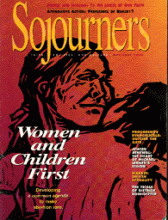Last fall, Oregon voters approved Measure 16, becoming the first state to permit physicians legally to prescribe lethal medications to terminally ill persons who have less than six months to live.
While it's worth watching the judicial struggles over the constitutionality of the measure as they work their way toward the Supreme Court, the battle for the hearts, minds, and votes of Oregonians that led up to the measure's passage in November is also worth careful scrutiny.
In particular, looking at the role that religious and medical leaders played in the public debate over physician-assisted suicide can yield some important lessons about the shifting nature of moral authority in our society.
Throughout the campaign the most visible opposition to Measure 16 came from the church, and in particular the Catholic Church. Religious leaders who opposed the measure presented two basic themes in their statements and commercials: that the measure was fraught with problems and would lead to a "slippery slope" of abuse, and that it was simply wrong.
Archbishop William Levada of the Archdiocese of Portland wrote that Measure 16 really was "selling murder in the name of mercy," and that if approved it-like Nazi euthanasia in the 1940s-might gradually be expanded to broader categories of people. Other religious organizations and leaders focused almost exclusively on what they saw as potential problems with the measure itself. Some went so far as to suggest that if the measure passed, "the right to die may well become the duty to die."
Read the Full Article
